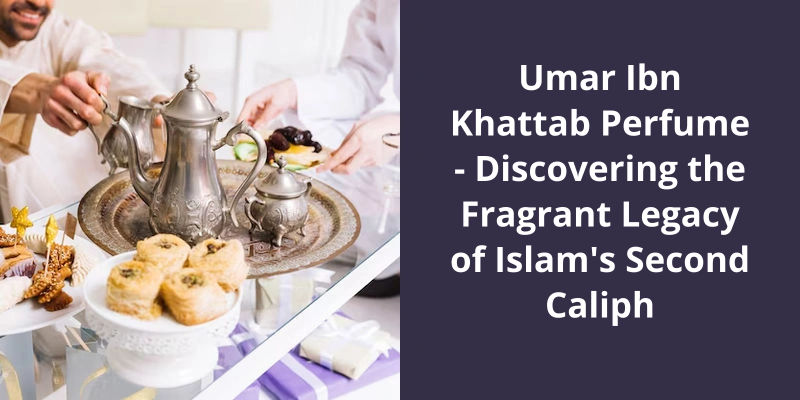A perfume collector, also known as a perfume connoisseur or perfume aficionado, is an individual who has a passion for collecting and appreciating various types of fragrances. This may include a range of products such as designer perfumes, unique boutique scents, or even rare and vintage perfumes. The collection and appreciation of these fragrances stem from a deep love for the artistry and craft that goes into creating each unique scent. The term “Perfume Collector Wanted” often refers to a call for individuals who have a vast knowledge and collection of perfumes and can provide insightful information about their composition, history, and personal experiences with the fragrances.
What Do You Call a Person Who Collects Perfumes – Perfume Collector Wanted
Fragrancista and Perfumista are two terms that are often used interchangeably, but they actually refer to two different roles in the fragrance industry.
Fragrancista: The term “Fragrancista” seems to be a play on the word “Fashionista,” referring to someone who is passionate about fragrances and enjoys exploring and wearing a variety of scents. A Fragrancista is someone who appreciates perfumes and may actively engage in collecting, discussing, and experimenting with different fragrances. They may have a diverse fragrance wardrobe and enjoy exploring the olfactory world.
Perfumista: The term “Perfumista” is more commonly used and generally refers to someone who has a deep passion and knowledge of perfumes. A Perfumista is typically a fragrance connoisseur or enthusiast who delves into the intricacies of fragrance creation, notes, and compositions. They may have a refined sense of smell, an understanding of perfume terminology, and an appreciation for the artistry and craftsmanship behind perfumes. Perfumistas often invest time and effort in studying and exploring various fragrance families, perfume houses, and the historical aspects of perfumery.
Both Fragrancistas and Perfumistas share a love for scents but may differ in the depth of their involvement and knowledge in the world of perfumes.
What Is a Master Perfumer Called – Become a Master Perfumer
Master perfumers are highly sought after in the fragrance industry. They’re responsible for creating signature scents of some of world”s most iconic brands. The process of creating a fragrance is complex and requires a great deal of skill and creativity.
The perfumer begins by selecting raw materials that will be used to create scent. These materials can include essential oils, synthetic materials, and natural extracts. The perfumer then combines these materials in various proportions to create unique scent. The perfumer must also consider the scent”s longevity, its ability to blend with other scents, and its ability to evoke certain emotions in the wearer. Once scent is perfected, perfumer must then create marketing plan to ensure that scent is successful. This includes creating a name, a logo, and a packaging design that will appeal to the target audience. Finally, perfumer must ensure that scent is produced in way that meets highest standards of quality.
What Is a Perfume Chemist – Become a Perfume Chemist
A fragrance chemist is a highly specialized scientist who works to develop fragrances for a variety of industries. They’re responsible for researching and creating scents for products such as perfumes, food, cleaning products, and manufacturing. Fragrance chemists must have a deep understanding of the chemical components of fragrances and how they interact with each other. They must also be able to identify and create new scents that are pleasing to senses.
They may use a combination of natural and synthetic ingredients to create a unique scent. They must also be able to identify and eliminate any unwanted odors or scents. Once a scent has been created, fragrance chemists must be able to test and evaluate the scent to ensure it meets the desired standards. They must also be able to adjust scent to meet needs of industry they’re working for.
What Is a Perfume Addict Called
A perfume addict, or CognoScenti, is a person who loves perfume and has a deep appreciation for the art of fragrance.
The term “perfume addict” refers to an individual who has a strong passion or obsession for perfumes. A perfume addict, also known as a fragrance enthusiast or perfume lover, typically has a deep appreciation for scents and may enjoy exploring and collecting a wide variety of fragrances. They may constantly seek out new perfumes, study fragrance notes and compositions, and stay updated on the latest releases from perfume houses.
As for “CognoScenti,” it appears to be a play on words combining “cognoscenti,” which means someone with a deep understanding and knowledge in a particular field, and “scent,” relating to perfumes or fragrances.
CognoScenti are often avid collectors of perfumes, and they may have large collection of different scents. They may also be able to identify a particular scent from a single sniff. They’re often passionate about art of perfumery and may be able to create their own unique blends.
Is Collecting Perfume a Hobby – Start Collecting Perfume!
Collecting perfume isn’t a job, its a hobby. Its way to express yourself and to explore world of fragrances. Its a way to connect with others who share the same passion.
When it comes to collecting perfume, its important to take it easy and not rush. Dont be tempted to buy the newest offerings right away. Instead, take your time to explore different scents and find ones that you truly love. Dont be afraid to try something new, as you never know what you might discover. Also, dont be afraid to ask for advice from other collectors. They can provide valuable insight and help you find the perfect scent for you.
Dont take it too seriously and dont be too competitive. Enjoy the process of exploring and discovering new scents. Take your time and dont rush. This will help you save money and make your collection much better.
How Do I Start Collecting Perfume
Starting a perfume collection can be an enjoyable and rewarding hobby. Here are some steps to help you get started:
- Explore and Educate Yourself: Begin by learning about different perfume families, fragrance notes, and the basics of perfumery. Read books, online resources, and fragrance blogs to deepen your knowledge and develop your olfactory vocabulary.
- Try Various Fragrances: Visit perfume stores, department stores, or niche fragrance boutiques to experience different perfumes firsthand. Take advantage of sampling services, where you can try small vials or test fragrances on your skin. Attend perfume events or exhibitions if possible to broaden your exposure to diverse scents.
- Identify Your Preferences: Pay attention to the types of fragrances you are drawn to and the scent families you enjoy. Determine if you prefer floral, woody, citrus, oriental, fresh, or other fragrance categories. This will help you develop a focus and refine your collection.
- Set a Budget: Decide on a budget for your perfume collection. Perfumes can range from affordable to luxurious, so it’s important to establish financial boundaries that suit your preferences and financial capacity.
- Start with Versatile Options: Begin your collection with versatile and widely appreciated fragrances that can serve as staples. These can include well-known classics or popular contemporary perfumes that appeal to a broad audience. This will provide a solid foundation for your collection.
- Research Niche and Artisanal Brands: As you become more familiar with perfumes, consider exploring niche or artisanal fragrance brands that offer unique and lesser-known scents. These brands often provide more niche and artistic creations that can add depth and variety to your collection.
- Consider Vintage and Limited Editions: Vintage perfumes and limited editions can be fascinating additions to a collection. However, be cautious when purchasing vintage fragrances, as they may have changed in composition or scent over time. Research reputable sources and sellers for authentic vintage perfumes.
- Store Perfumes Properly: Perfumes should be stored in a cool, dark place away from direct sunlight and extreme temperature fluctuations. Consider investing in a perfume tray or display case to showcase your collection while protecting the fragrances.
- Connect with Other Perfume Enthusiasts: Engage with the perfume community by joining online fragrance forums, participating in perfume-related social media groups, or attending fragrance meetups and events. Sharing experiences, discussing scents, and getting recommendations from fellow enthusiasts can enhance your knowledge and passion.
- Enjoy the Journey: Collecting perfumes is a personal and subjective endeavor. Explore and acquire fragrances that bring you joy, reflect your personality, and evoke positive emotions. The process of discovering and experiencing different scents should be an enjoyable and fulfilling journey.
Remember, collecting perfumes is a personal pursuit, and there are no strict rules. Follow your own preferences and interests to curate a collection that is uniquely yours.
Who Is the World Best Perfumer?
It is challenging to determine a single “world’s best” perfumer because the evaluation of perfumery is subjective, and individual preferences vary greatly. However, there are several highly respected perfumers who have made significant contributions to the fragrance industry and have received acclaim for their creations. Some notable perfumers include:
Jacques Guerlain: Known for iconic fragrances such as Shalimar and Mitsouko, Jacques Guerlain was a master perfumer and a key figure in the Guerlain perfume house.
Ernest Beaux: Renowned for creating Chanel No. 5, Ernest Beaux was a perfumer who played a crucial role in revolutionizing the fragrance industry with his innovative compositions.
Jean-Claude Ellena: A highly regarded contemporary perfumer, Jean-Claude Ellena has crafted numerous notable fragrances, including Hermès’ Un Jardin series and Terre d’Hermès.
Dominique Ropion: Dominique Ropion is known for his versatile and influential creations, collaborating with various fragrance houses. His works include La Vie est Belle by Lancôme and Carnal Flower by Editions de Parfums Frédéric Malle.
Olivia Giacobetti: Olivia Giacobetti is recognized for her minimalist and atmospheric style, creating fragrances like En Passant for Editions de Parfums Frédéric Malle and Philosykos for Diptyque.
Alberto Morillas: Alberto Morillas has a prolific portfolio, contributing to a wide range of successful fragrances, such as CK One by Calvin Klein and Flowerbomb by Viktor & Rolf.
These are just a few examples of influential perfumers, and there are many other talented individuals who have made significant contributions to the perfume industry. The notion of the “best” perfumer can vary depending on personal taste, cultural context, and individual preferences. It’s important to explore and appreciate the diverse creations of perfumers to find the scents that resonate with you personally.
How Do I Become a Vendor for Perfume
If you’re interested in becoming a distributor of your favorite perfume brands, the first step is to contact the wholesale department of the manufacturers. You can usually find this information on companys website or by calling their customer service line. Once you’ve made contact, you’ll need to fill out an application and provide any necessary documentation. Depending on company, you may also need to purchase certain minimum amount of product in order to qualify as distributor.
What Do You Call a Smell Specialist
A professional who specializes in the study, evaluation, and creation of scents is commonly referred to as a perfumer or a fragrance expert. These individuals have a deep understanding of fragrance composition, olfactory notes, and the art of blending scents. They use their knowledge and expertise to create perfumes, colognes, and other scented products. Perfumers often work in the fragrance industry, collaborating with perfume houses, beauty brands, or as independent perfumers. They may also be involved in fragrance development for various applications, such as personal care products, candles, or home fragrances.
Conclusion
Several terms are commonly used to describe perfumers and their roles in the fragrance industry. These terms reflect the skill, creativity, and expertise that perfumers possess in the creation of fragrances. They highlight the artistry and craftsmanship involved in crafting scents that evoke emotions, memories, and personal connections.





